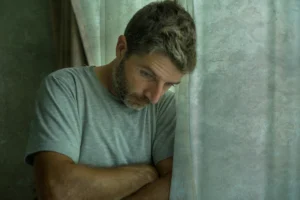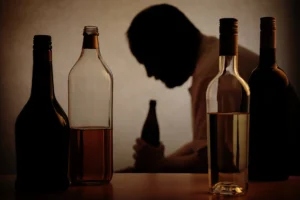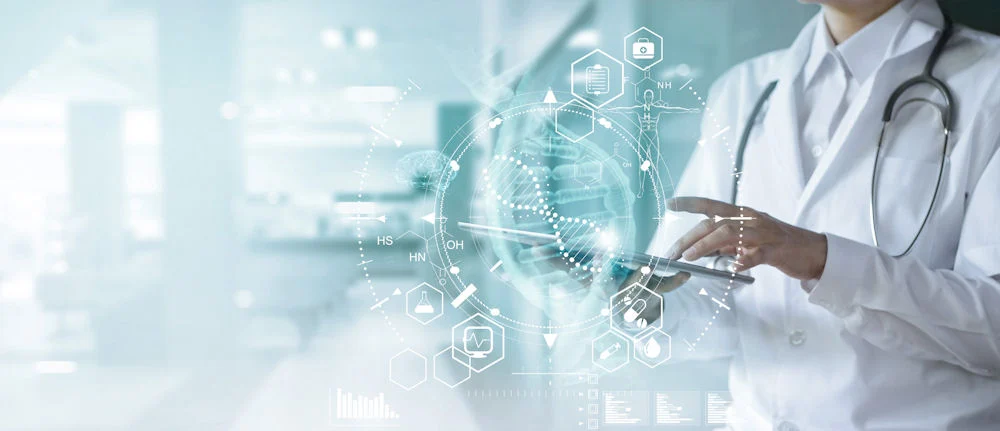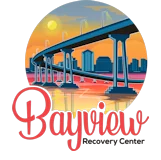Addiction and Mental Health Resources in California
Substance abuse continues to be one of the most urgent public health issues in California, with thousands of individuals and families affected each year. In San Diego and throughout the Golden State, access to high-quality addiction treatment resources is vital for saving lives, restoring health, and helping individuals and families move forward from the cycle of substance use.
Bayview Recovery Center, located in San Diego, California, recognizes that there’s a gap between needing addiction treatment and receiving it. Therefore, we provide men with access to various levels of care and essential resources that educate them on healthy coping strategies for addressing their addiction and mental health challenges. We aim to shed light on the patterns of drug and alcohol abuse plaguing Southern California and find ways to combat the ongoing epidemic and overdose crisis.
The Scope of Substance Abuse in California
California is home to more than 39 million residents, and unfortunately, the state sees some of the highest rates of substance use disorders (SUDs) in the nation. According to the California Health Care Foundation, approximately 8% of Californians – more than 2.7 million people struggle with a substance use disorder. In San Diego County alone, opioid addiction and overdoses have increased in recent years, with fentanyl emerging as a leading cause of overdose deaths.
For those who reside in San Diego, California, the city’s numerous attractions are well-known. This renowned city boasts stunning natural landscapes, a vibrant arts and culture community, exceptional local cuisine, and much more. Nevertheless, similar to various regions across the United States, San Diego faces its public health challenges.
A significant concern in this area is the high rate of substance abuse. The main substances of concern and major drug threats in San Diego County and Southern California are heroin and methamphetamine (meth), both of which are commonly abused due to their widespread availability and easy access. These illicit drugs are smuggled across the southwestern border between California and Mexico.
San Diego saw a 24% rise in drug arrests in 2024. While the number of arrests increased, overdose fatalities decreased by approximately 7.5% from 2022 to 2023, falling from 1,300 to 1,200, as reported by the San Diego County Substance Use and Overdose Prevention Task Force Annual Report Card. However, overdoses and substance use-related fatalities due to drug abuse are still very much a threat. The following information illustrates the prevalence of addiction in San Diego and throughout the state of California.
Commonly Abused Substances in San Diego and California
The local San Diego DEA Office reports that synthetic opioids, particularly fentanyl, are becoming two of the most hazardous drugs currently present in the San Diego area. Unfortunately, fentanyl is often hidden within heroin, methamphetamine, and cocaine, which amplifies the dangers of drug consumption and raises the risk of overdose due to its increased potency.
Additionally, marijuana, cocaine, and prescription medications are frequently misused. As overdose fatalities escalate across the country, fentanyl has gained a significant presence on the streets of San Diego, resulting in an alarming increase in deaths related to overdoses. The substances most frequently associated with addiction in California include:
- Alcohol: Despite its legality, alcohol remains one of the most commonly abused substances. Binge drinking and long-term alcohol abuse contribute to countless health complications and fatalities every year.
- Opioids: Prescription painkillers like oxycodone and illicit opioids like heroin and fentanyl have fueled an epidemic of overdose deaths.
- Methamphetamine: Particularly prevalent in Southern California, meth continues to cause devastation due to its addictive properties and severe physical consequences.
- Cocaine: Powdered and crack cocaine still hold a significant presence in urban areas, including San Diego.
- Benzodiazepines and prescription drugs: When misused, these medications can lead to addiction, especially when combined with other depressants like alcohol.
The need for comprehensive, evidence-based care and access to addiction treatment resources has never been greater. At Bayview Recovery Center in San Diego, CA, we are committed to being a trusted source of healing and guidance for those seeking addiction and mental health treatment.

Why Treatment Matters: Rebuilding Lives Through Recovery
Addiction is not a moral failing or a lack of willpower – it is a chronic, progressive, and treatable condition. Left unaddressed, substance use disorders can lead to serious mental, physical, and social consequences. But with the right treatment and support, recovery is possible.
Effective addiction treatment goes beyond detox. It includes therapies that address the root causes of substance use, help individuals rebuild their lives, and offer tools for long-term recovery. For many people, especially those with co-occurring mental health conditions, access to comprehensive and integrated care is critical.
Seeking treatment also empowers individuals to regain control of their lives. It opens the door to mended relationships, renewed purpose, improved health, and a future free from the grip of addiction. Treatment not only changes individual outcomes, it transforms entire families and communities.
The Importance of Finding the Right Resources
Finding addiction treatment can feel overwhelming, especially when navigating the emotional toll of addiction. But the right support network and treatment resources can make all the difference. Whether you’re seeking help for yourself or a loved one, having access to reliable, compassionate, and expert-led services is essential.
Addiction doesn’t only affect the person using substances – it impacts their family, friendships, finances, and overall quality of life. That’s why many addiction resources in San Diego focus not only on individual healing but on family support, education, and communication tools. Empowering the entire family unit promotes deeper and more sustainable recovery outcomes.
Support for Families
Family members often struggle with fear, confusion, and helplessness as they watch their loved one battle addiction. They may feel isolated or unsure of how to help. That’s why family involvement in the recovery process is so crucial.
Through counseling, education, and group therapy, families can better understand addiction as a disease, learn healthy coping strategies, and rebuild trust. This unified approach allows families to heal together and develop supportive communication that enhances everyone’s well-being.
Recovery Resources
At Bayview Recovery Center in San Diego, CA, our mission is to enhance understanding of the risk factors and effects associated with substance abuse, thereby improving access to treatment and fostering the best possible recovery outcomes for our clients. Stay in the know with us!

The Men’s Mental Health Crisis: Why It’s Time to Redefine Strength
Find insight into the men’s mental health crisis, including warning signs, prevention strategies, and how to support men’s emotional well-being and recovery.

How Does Drinking Alcohol Damage the Brain?
Whether you’re here out of concern for yourself, a loved one, or simply to learn more, understanding alcohol brain damage is an important step toward

What Makes Men Vulnerable to Addiction?
Learn why men are at higher risk for addiction and how early intervention can make a difference. Take the first step toward understanding and support today.

Gray Area Drinking: Recognizing the Signs
Alcohol use exists on a spectrum—from casual social drinking to full-blown addiction. Somewhere in between lies a murky, often overlooked category known as gray area drinking.

Adderall: How Long Does It Stay in Your System?
Wondering how long Adderall stays in your system? Learn about detection times, factors that affect metabolism, and what to expect during the detox process.

Life Expectancy of Someone With a Wet Brain
Discover the factors affecting the life expectancy of someone with a wet brain, a severe condition caused by chronic alcohol abuse and thiamine deficiency.
Dual Diagnosis Treatment: Addressing Mental Health and SUDs
In many cases, addiction is intertwined with mental health disorders such as depression, anxiety, PTSD, bipolar disorder, or trauma-related conditions. This is known as a dual diagnosis or co-occurring disorder. According to the National Institute on Drug Abuse (NIDA), more than 60% of adolescents in community-based substance use disorder treatment programs also meet diagnostic criteria for another mental illness.
Dual diagnosis treatment is essential for long-term recovery because untreated mental health issues can fuel substance use, and vice versa. At Bayview Recovery Center, we offer integrated care designed to treat both conditions simultaneously. Our multidisciplinary team includes licensed mental health professionals, medical doctors, and addiction specialists who collaborate to create a personalized plan for every client.
Key components of our dual diagnosis treatment program include:
- Psychiatric evaluation and diagnosis
- Medication management, when appropriate
- Individual therapy
- Group therapy
- Cognitive behavioral therapy (CBT)
- Dialectical behavior therapy (DBT)
- Trauma-informed care
- Holistic therapy (Mindfulness, yoga, and art therapy)
Types of Addiction Resources in San Diego, California
For individuals needing 24/7 supervision and a structured environment, residential treatment is often the best option. These programs offer intensive therapy, medical detox, and immersive recovery education. Bayview Recovery Center provides a safe and supportive setting where clients can fully focus on their healing journey.
Outpatient treatment programs are ideal for those transitioning from residential treatment or needing flexible treatment options. These programs allow individuals to attend therapy and support groups while maintaining daily responsibilities like work, school, or caregiving.
MAT is an evidence-based approach combining medications like Suboxone, Vivitrol, or methadone with counseling and behavioral therapies. It is especially effective for treating opioid and alcohol dependence.
San Diego is home to several nonprofit organizations and community programs that provide support services for those affected by addiction. These include:
- 211 San Diego: Offers information and referrals for health and social services, including addiction treatment.
- San Diego County Behavioral Health Services: Provides public mental health and substance use services.
- Harm Reduction Coalition of San Diego: Offers services like needle exchange, overdose prevention, and education.
Groups such as Alcoholics Anonymous (AA), Narcotics Anonymous (NA), SMART Recovery, and Refuge Recovery offer peer-led, nonjudgmental spaces for individuals to share experiences and support one another. Many of these groups offer both in-person and online meetings throughout San Diego.
Resources like Al-Anon and Nar-Anon provide education and emotional support for loved ones navigating the challenges of a family member’s addiction. Participating in family support can improve communication, reduce stress, and promote mutual healing.
Bayview Recovery Center Can Help Break the Cycle of Addiction
At Bayview Recovery Center, our mission is to guide individuals and families through the often-difficult process of overcoming addiction. Located in the heart of San Diego, we provide a peaceful and private environment that fosters trust, transformation, and long-term wellness.
What Sets Us Apart
- Personalized treatment plans tailored to each individual’s needs and goals
- Compassionate, credentialed staff with expertise in trauma, addiction, and dual diagnosis
- A blend of traditional and holistic therapies for whole-person healing
- Strong family involvement to help rebuild relationships and promote lasting change
We recognize that the journey to recovery is deeply personal, and our team is here to walk beside you every step of the way. From medical detox to aftercare programs, we provide the comprehensive resources needed to empower lasting recovery.
Building a Life Beyond Addiction
Recovery doesn’t end when formal treatment does. That’s why we help clients develop aftercare plans that include ongoing therapy, support groups, sober living options, and relapse prevention strategies. The goal is to build a life filled with purpose, connection, and resilience.
We believe everyone deserves the chance to heal, no matter where they are in their journey. Whether you’re just starting to explore your options or seeking a supportive community after treatment, Bayview Recovery Center is here to help.
Take the First Step Today

If you or someone you love is struggling with addiction, you are not alone. Help is available, and recovery is possible. Bayview Recovery Center in San Diego, CA, is here to offer the tools, guidance, and community needed to reclaim your life. Don’t wait for the situation to worsen – take the first step toward healing today. Contact us to learn more about our programs and start your journey toward lasting recovery.

Alyssa is a licensed Clinical Social Worker and received her Master’s degree from San Diego State University. She has experience working with individuals in recovery of all ages for over eight years. Alyssa has also worked with at-risk homeless foster youth transitioning into independent living along with the families in the neonatal intensive care unit at UCSD.
